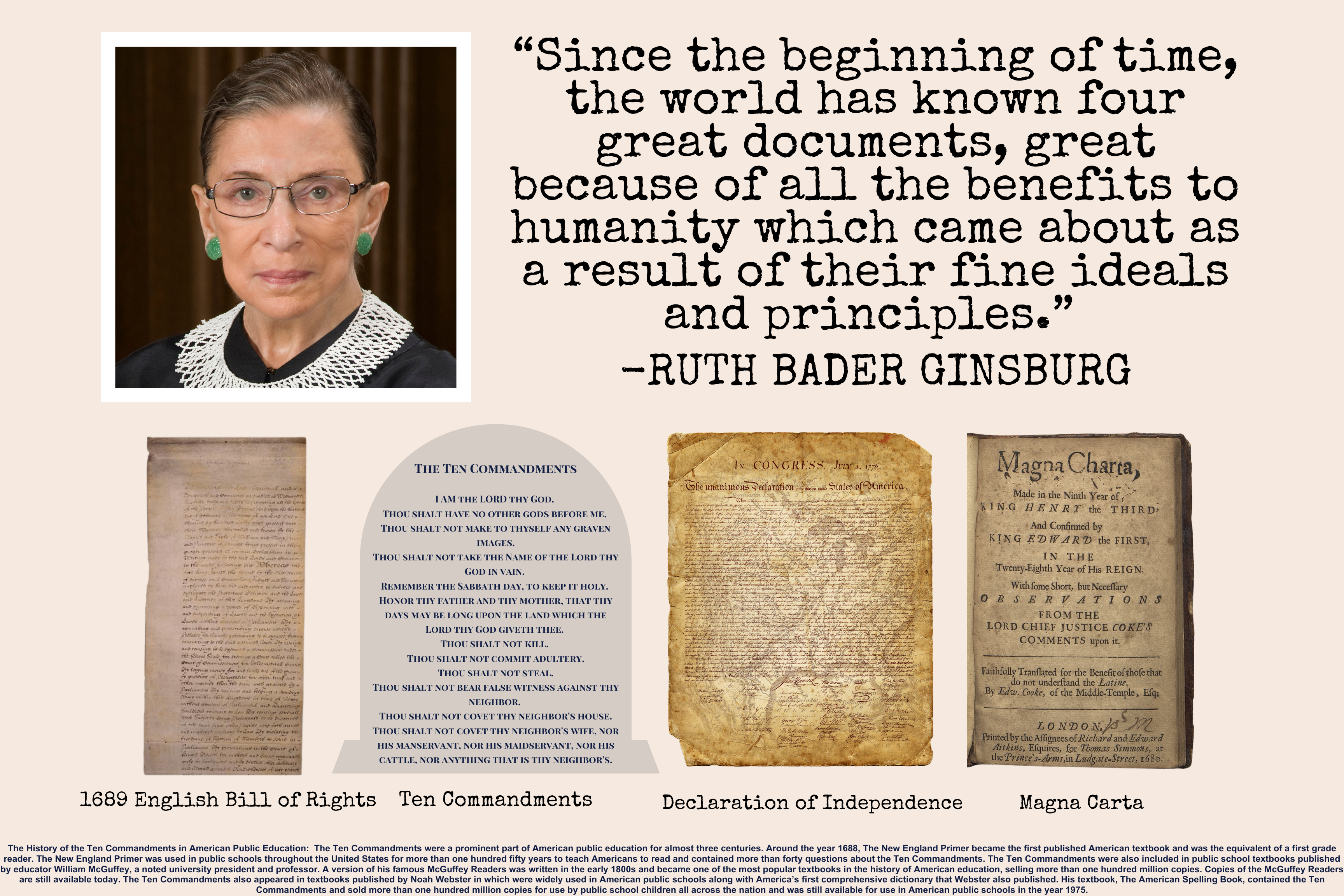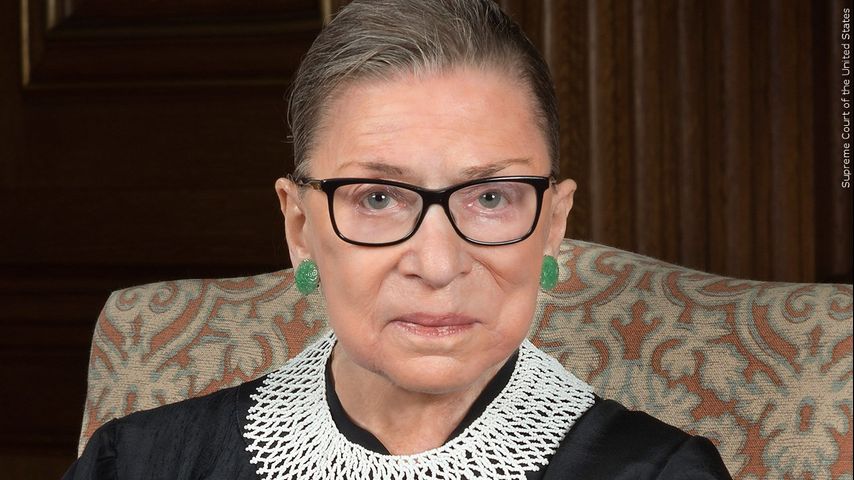'A violation of the Constitution:' Family of RBG denounces late judge's portrayed approval of Ten Commandments in classrooms
BATON ROUGE - The family of late U.S. Supreme Court Justice Ruth Bader Ginsburg says Louisiana's governor and attorney general are hoodwinking the public by using Ginsburg's picture and a quote in a prototype poster created to demonstrate how to display the Ten Commandments in the state's classrooms.
 Sent by Attorney General Liz Murrill's office as an example of how the Ten Commandments can be displayed in classrooms
Sent by Attorney General Liz Murrill's office as an example of how the Ten Commandments can be displayed in classrooms
“The poster is extremely misleading and should be called out,” said Jane Ginsburg, the justice's daughter.
Jane Ginsburg’ says the poster - sent out by Attorney General Liz Murrill - displays a quote her mother wrote in junior high and was not representative of her thoughts later in life, including when she served on the Supreme Court. She says it’s deceptive to put RBG’s official Supreme Court photo next to the statement.
“The quotation comes from an essay my mother wrote in junior high school,” Jane Ginsburg said. “Its juxtaposition with one of her official portraits as a Supreme Court Justice appears designed to lead one to believe the statement coincided with her service on the Court.”
In a brief filed by the AG's office Monday, the attorney general used Ginsburg's quote as an example for how the Ten Commandments could be viewed in a historic context. The State has argued the Ten Commandments can be viewed as a historical document without violating the Establishment Clause in the First Amendment.
Trending News
"No reasonable observer would feel coerced to venerate the Ten Commandments if, for example, they happen to see Justice Ginsburg’s take on important foundational documents."
Justice Ginsburg’s granddaughter, Clara Spera, said the state government’s use of RBG’s photo and words is misguided.
“The use of my grandmother's image in Louisiana's unconstitutional effort to display the Ten Commandments in public schools is misleading and an affront to her well-documented First Amendment jurisprudence. The quote that Louisiana has attributed to her is taken from a school newspaper editorial that Ruth Bader wrote in 1946, when she was in the eighth grade. In that piece, the school-aged girl was not setting out a legal principle about separation of church and state, or advocating for the display of the Ten Commandments in public spaces. Instead, in the wake of the end of World War II, she was heralding the adoption of the Charter of the United Nations, celebrating the promise of peace that it ushered in and comparing it to other documents foundational to modern society, including the Declaration of Independence and the Magna Carta. By placing the quote next to an official Supreme Court portrait of her in judicial robes and a jabot, Louisiana is misleading the public by suggesting that Justice Ginsburg made the statement about the Ten Commandments being among the world's "four great documents" while serving as a Supreme Court Justice. She did not.
As a legal advocate, scholar, and jurist, Ruth Bader Ginsburg was steadfast in her position that the Constitution "does not allow the religious beliefs of some to overwhelm the rights and interest of others who do not share those beliefs." That is precisely what Louisiana's plan to display the Ten Commandments in public schools would do. Justice Ginsburg's opinions and votes in Supreme Court cases made clear that she agreed with the position that displays of the Ten Commandments in public spaces like schools, courthouses, and government buildings violate the constitution. For example, in McCreary County v. ACLU, she joined the majority opinion that held that Ten Commandments displays in Kentucky courthouses and public schools violated the Establishment Clause. And in her fierce dissent in American Legion v. American Humanist Association, a case where the Supreme Court held that it was permissible for the town of Bladensburg, Maryland to display an immense Latin cross in the middle of a busy traffic island, she was nothing but clear in her view that the majority eroded the basic Constitutional principle that demands government neutrality among religious faiths, and between religion and nonreligion. To me, and to others familiar with Justice Ginsburg's legal writings and philosophy, there is no doubt that my grandmother would find that Louisiana's effort to require public schools to display the Ten Commandments is a violation of the Constitution.”
In 2005, Justice Ginsburg sided with a majority opinion to limit the government’s use of the Ten Commandments in Kentucky. She agreed with four of her colleagues the Commandments could not be displayed in courthouses - and doing so violated the Establishment Clause.
“The Louisiana officials’ attempt to suggest her endorsement of classroom display of the Ten Commandments is totally inconsistent with my mother’s opinions on the Court,” Jane Ginsburg said.
On Monday, AG Murrill asked a federal judge to dismiss a lawsuit filed by parents in Louisiana’s public school system who say the inclusion of the Ten Commandments violates the First Amendment. Murrill was accompanied by Governor Jeff Landry, who has been outspoken about his support for the measure. He said parents who believe the posters are indecent should tell their children not to look at them.




